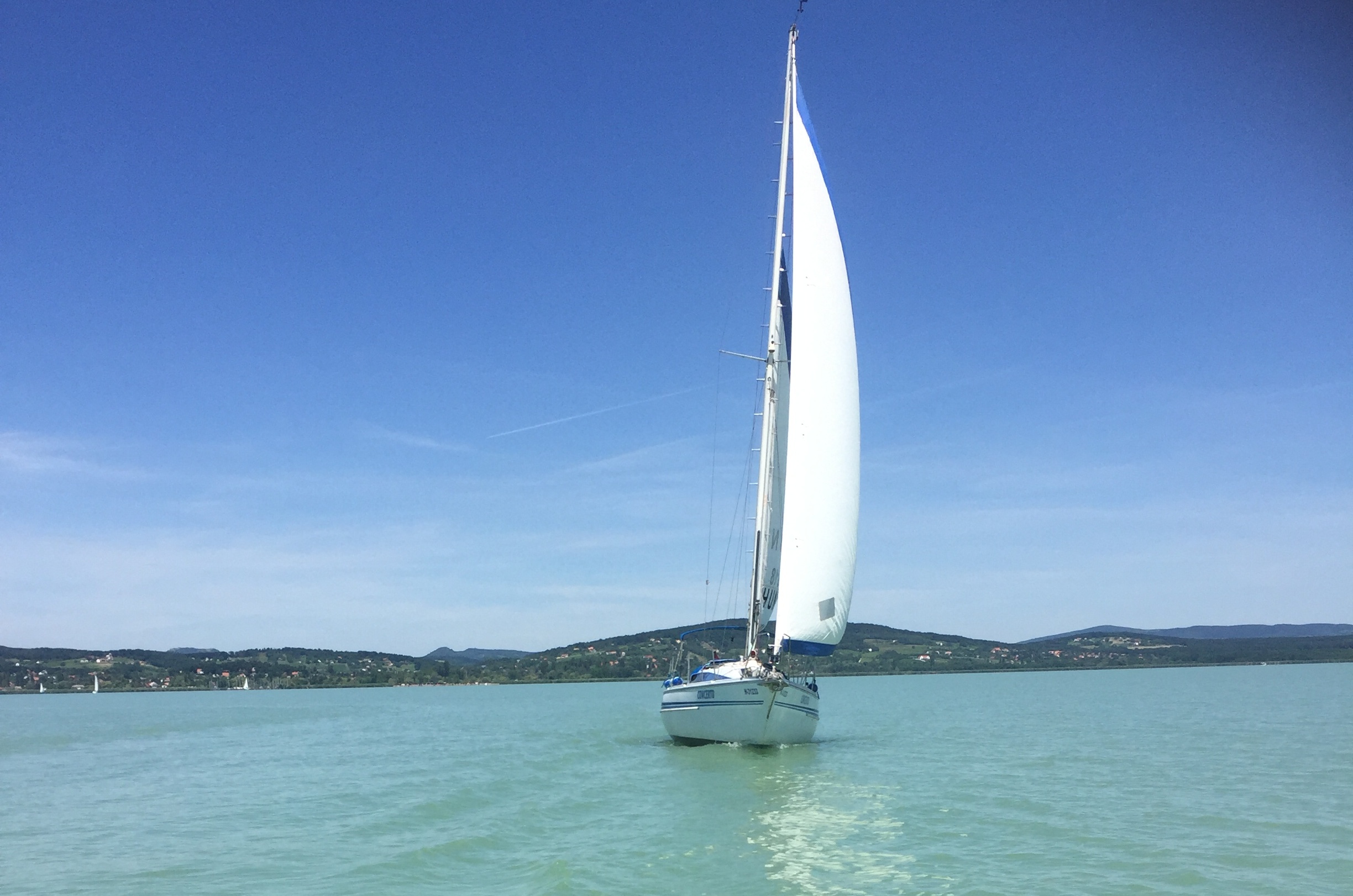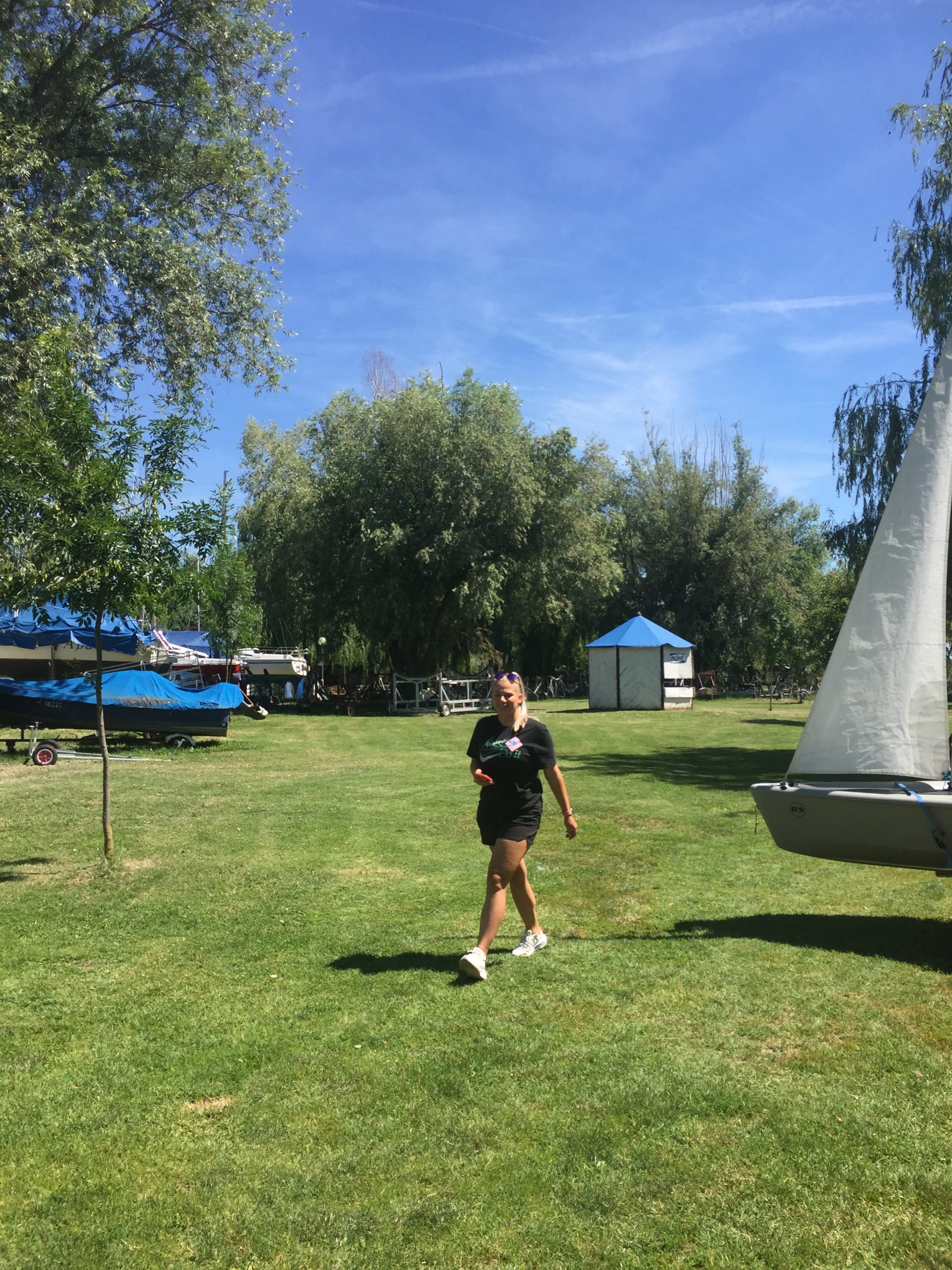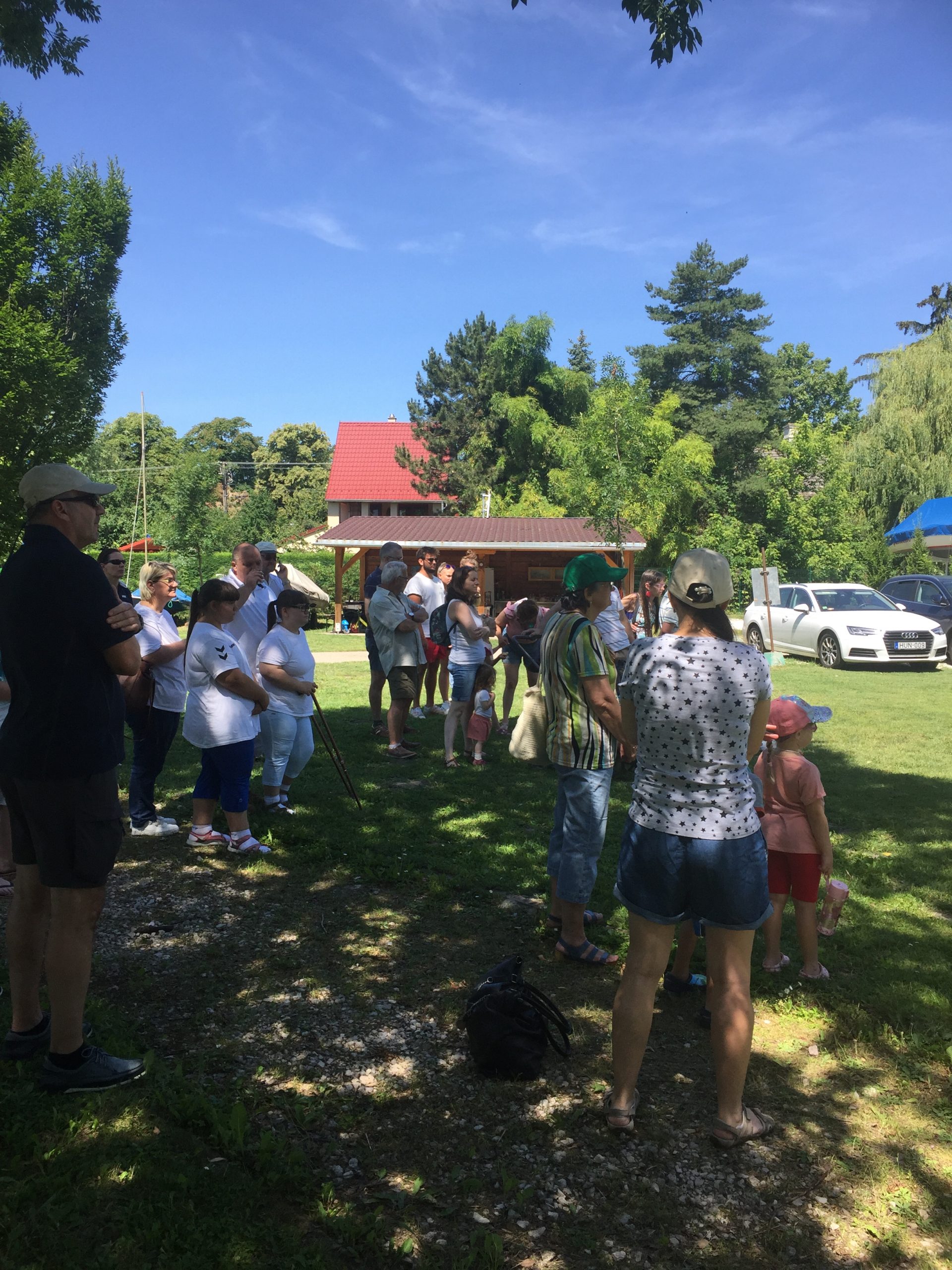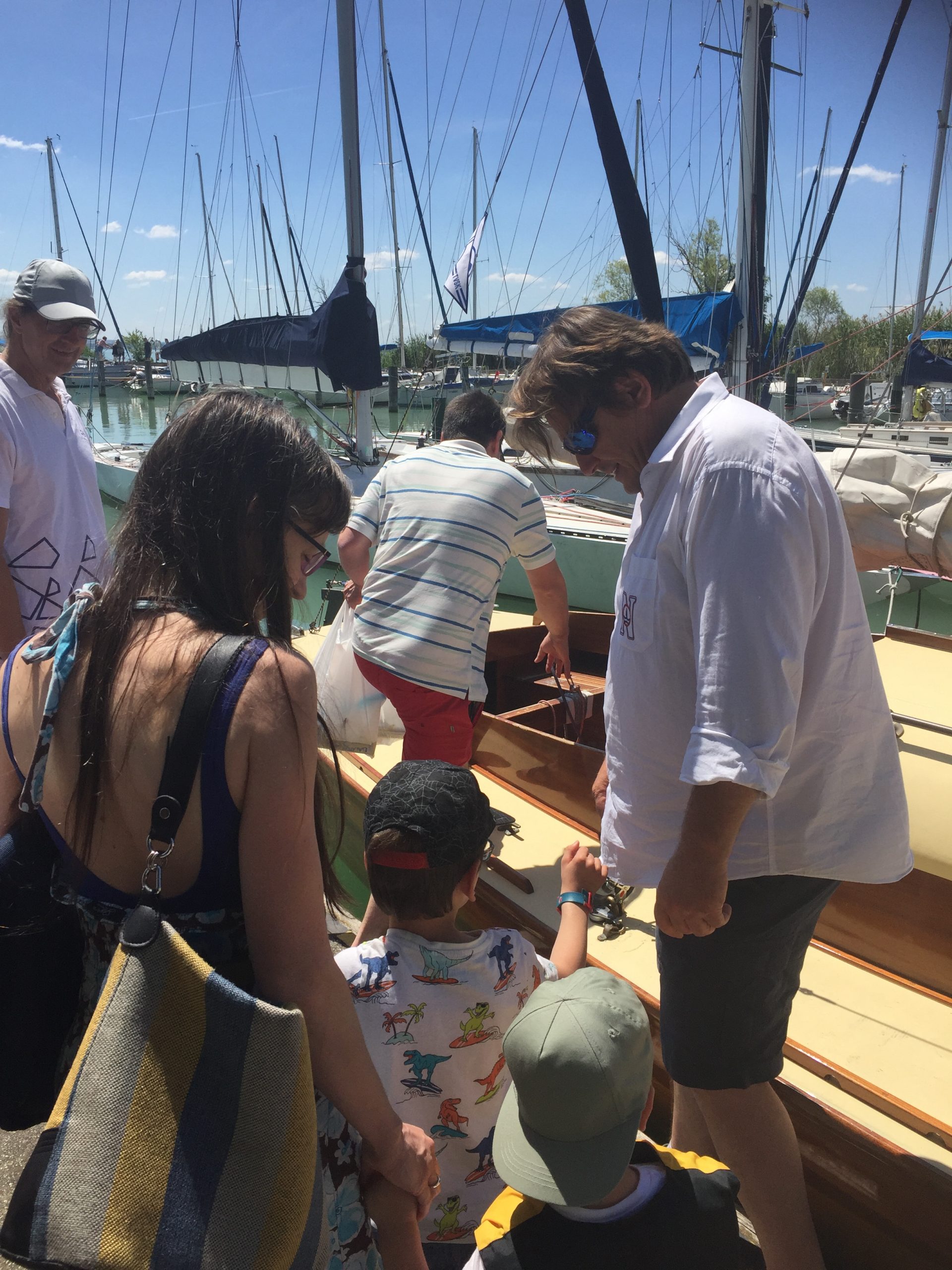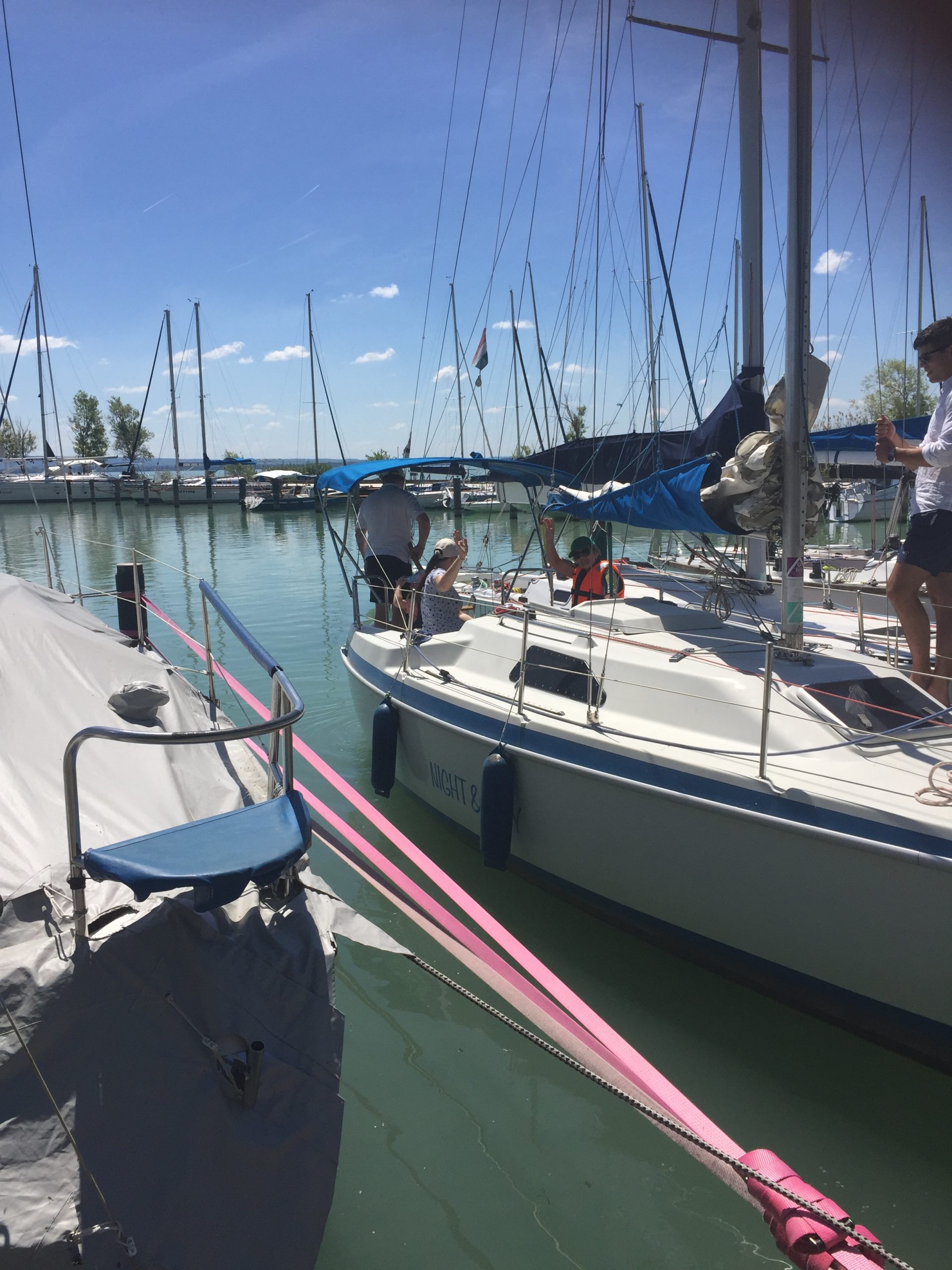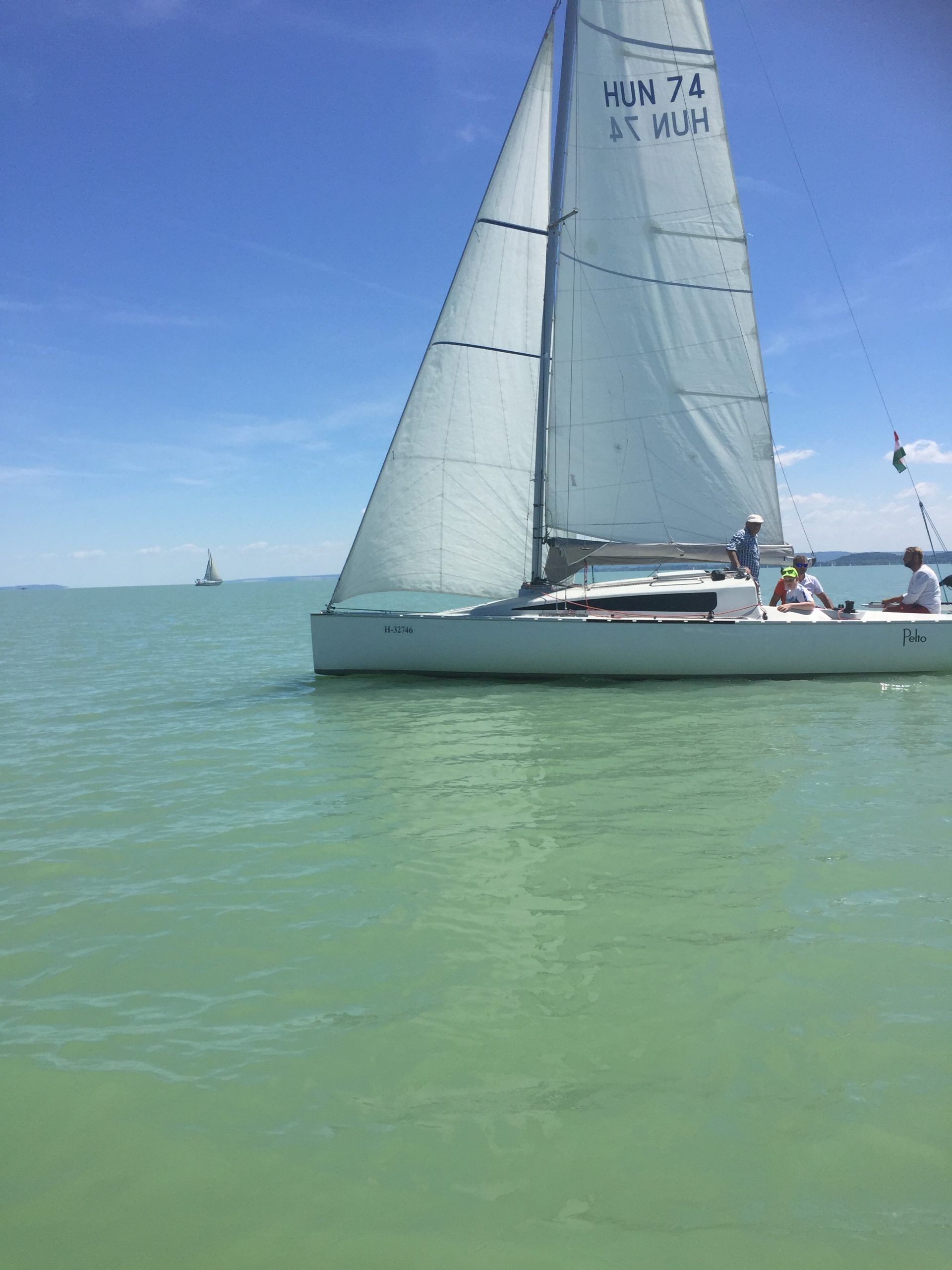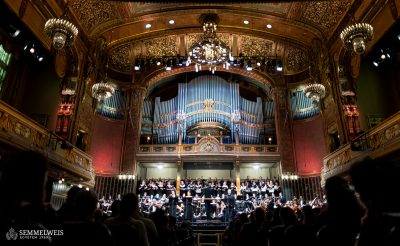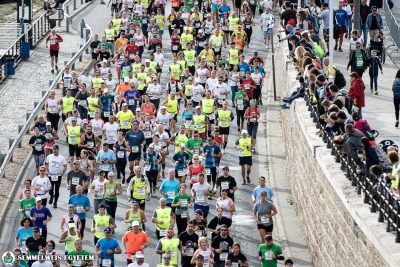On 18 June, an open day about accessible sailing was organised on Lake Balaton for children and young people with disabilities. At the joint event of the Pető András Pedagogical Institute, the Foundation of the Hungarian Alzheimer Patients and Associates Community (Alzheimer Foundation) and the Touring Sailing Sports Club (TVSK)-Ábrahámhegy Association, 15 children and young people from the Pető András Faculty of Education could try the sport in six sailing boats, accompanied by their parents and family members.
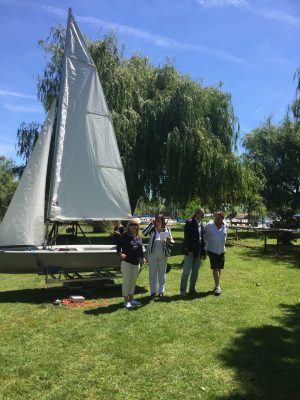 The event was opened by Dr. Miklósné Tenk Dr. Andrea Zsebe, Dean of the Pető András Faculty (PAK) of Semmelweis University. In her speech, she pointed out that in addition to the developmental sessions and activities of conductive pedagogy, since the early 2000s, they have been providing adaptive sports for their students as well. “Sport is a source of joy, a sense of achievement and represents a challenge for people with disabilities. There are currently 11 different kind of sports children can choose from, of which 3 – adaptive rowing, fencing and cycling – are also involved in paralympic youth training. We have an excellent cooperation with the Hungarian Paralympic Committee. The training sessions are held by professional coaches, and our students also participate in the programme as part of their internships,” she added.
The event was opened by Dr. Miklósné Tenk Dr. Andrea Zsebe, Dean of the Pető András Faculty (PAK) of Semmelweis University. In her speech, she pointed out that in addition to the developmental sessions and activities of conductive pedagogy, since the early 2000s, they have been providing adaptive sports for their students as well. “Sport is a source of joy, a sense of achievement and represents a challenge for people with disabilities. There are currently 11 different kind of sports children can choose from, of which 3 – adaptive rowing, fencing and cycling – are also involved in paralympic youth training. We have an excellent cooperation with the Hungarian Paralympic Committee. The training sessions are held by professional coaches, and our students also participate in the programme as part of their internships,” she added.
She highlighted that this was the first time that children attending PAK institutions could try sailing, and expressed her gratitude to the president of the TVSK at Ábrahámhegy, to Zsombor Homonnay, the organisers and also the captains who lined up with the boats. “The faculty is open to cooperation in all kind of sports, in order to make them accessible to our students with mobility problems,” the dean noted, adding that Semmelweis University places particular emphasis on promoting sport and active leisure, whether it is the Family-Friendly University program, physical education classes or the highly successful open day in the spring semester, when students were encouraged to learn about adaptive sports.
András Gosztonyi, chairman of the board of trustees at the Hungarian Alzheimer Foundation, told our website that he considers sport as a great value in itself, and also that sailing plays an important role in his life. “I have competed against young competitors with disabilities several times myself, who perfomed in the field like anyone else. That’s where the idea came from, to introduce sailing to as many children with disabilities as possible, even those who hadn’t previously thought of trying it themselves. One of the aims of our foundation is to make this activity accessible to children with disabilities, as a joyful experience and as a competitive sport as well,” he said.
Virág Homonnay, a graduate student at PAK and one of the organisers of the event, wrote her thesis on sailing for people with reduced mobility. “I am qualified as a sailing instructor, and I have always wanted to combine this with conductive pedagogy,” she said. “Movement on uneven surfaces has an impact on coordination and also develops the sense of balance. Sailing is a very complex sport, where you have to pay attention to many things, and adapt to many situations. The skills one learns during this sport can be used by children with reduced mobility in their everyday lives,” she explained.
Conductor Csilla Csizy, an expert of the Pedagogical Institute, stressed that the event was also pioneering in that it revealed the practical possibilities of adapting the sport for people with disabilities. “The feedback we received showed that the event was a defining experience for all participants. Essentially, it is a positive confirmation that interdisciplinary cooperation through a project like this promotes real social inclusion,” she said. This initial success is a motivating force, so as a result, the foundation, with the help of the András Pető Faculty, is organizing a sailing camp in the last week of August. The goal is to encourage more children with special educational needs to learn and fall in love with sailing, and to try their hand at it later on, even as competitors, she added.
Ádám Szabó
Translation: Viktória Kiss
Photo: Csilla Csizy
